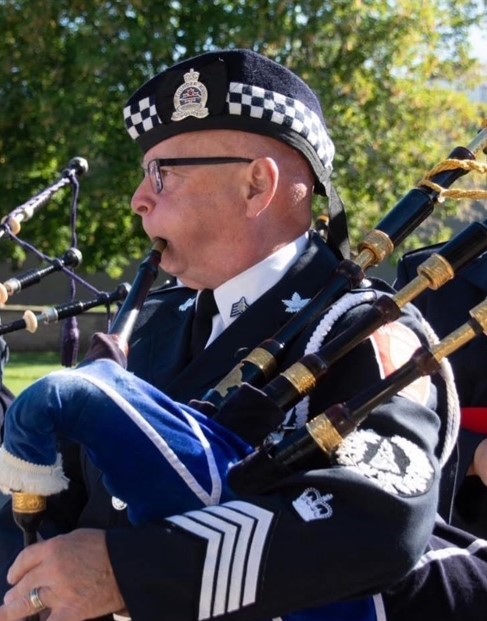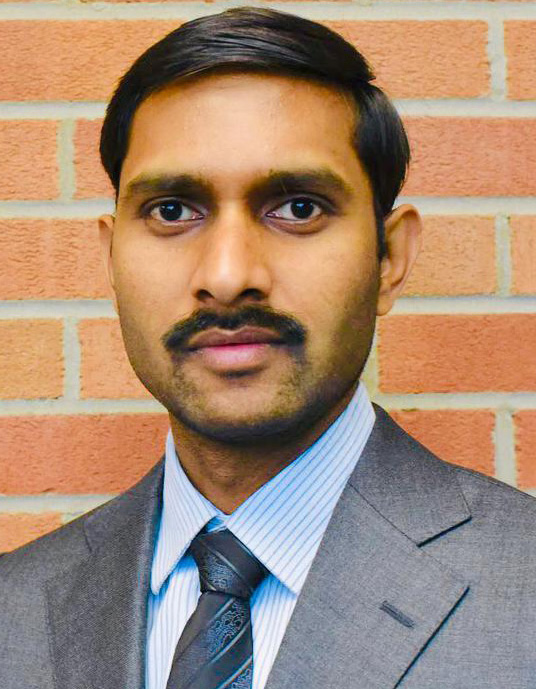New project will increase pathways for Indigenous youth to enter engineering programs at Lakehead University
Thunder Bay, Ont. – Lakehead University has received $540,000 from the Natural Sciences and Engineering Research Council of Canada (NSERC) PromoScience program to address the underrepresentation of Indigenous perspectives and knowledge in Canada’s engineering profession.
Led by Lakehead’s Faculty of Engineering, the project, ‘Sustainable Engineering for Indigenous Communities,’ will develop outreach programming for primary and secondary school students in northwestern Ontario, Manitoba, and Saskatchewan, with an emphasis on engaging Indigenous youth and their communities to promote sustainable engineering.
“Our shared intention with our partners is to provide Indigenous youth with more opportunities and more pathways to become engineers, enabling them to apply their talent and perspectives to help address challenges facing communities across Canada, including sustainable land development, ecosystem restoration, and access to clean water, energy, and housing,” said Faculty of Engineering dean Dr. Janusz Kozinski.
Dr. Kozinski says that less than one per cent of undergraduate students enrolled in accredited engineering programs in Canada identify as Indigenous. “We want to send a strong, compelling message to students throughout their educational journey that engineering is for everyone and there is a pathway for every student to become an engineer.”
Alongside partners PSI Analytics Inc., a Saskatoon-based pavement, materials, and mining engineering firm, and Civiconnect, an Ontario-based organization with expertise in developing work-integrated learning experiences for young people, the outreach program aims to engage 2,000 Indigenous youth each year, and an additional 5,000 through digital resources and platforms. Educators, including Elders, Knowledge Keepers, and cultural advisors, will support the development and delivery of these initiatives.
“PSI believes in knowledge sharing with youngsters in our community,” stated Dr. Curtis Berthelot, President and Chief Technical Officer, PSI Analytics Inc. “We are aware of the necessity of developing outreach programs and educational pathways that are designed in a collaborative partnership with Indigenous leaders and educators, with the long-term goal of bringing more Indigenous students into engineering, and to help build the next generation of infrastructure that Canada needs.”
“Through initiatives like this, Lakehead University can create balanced and effective engineering solutions that genuinely benefit Indigenous communities,” said Nour Hage, President & CEO of Civiconnect. “By partnering on this initiative, we strive to further Civiconnect’s mission of fostering career readiness among Canada's youth, notably by expanding opportunities for Indigenous communities, thereby enhancing our efforts to bridge educational and employment gaps in underrepresented groups.”
The proposal also received strong support from the Fort William First Nation, the Ontario Society of Professional Engineers, Gambler First Nation in Manitoba, and Lakehead’s Office of Indigenous Initiatives.
The project is set to begin later in 2025 and will take place initially over the next three years.
NSERC's PromoScience program offers financial support for organizations working with young Canadians to promote an understanding of science and engineering (including mathematics and technology). PromoScience supports hands-on learning experiences for young students and their science teachers.










 A premature baby who weighed just one pound and 10 ounces, Seth was given a less than a 1% chance of survival. "Growing up, I faced many challenges, including ADHD and severe hearing impairment," says the Toronto native and first-year student at Lakehead's Bora Laskin Faculty of Law in Thunder Bay. "These obstacles led others to doubt my ability to succeed, but I've always been determined to prove the naysayers wrong."
A premature baby who weighed just one pound and 10 ounces, Seth was given a less than a 1% chance of survival. "Growing up, I faced many challenges, including ADHD and severe hearing impairment," says the Toronto native and first-year student at Lakehead's Bora Laskin Faculty of Law in Thunder Bay. "These obstacles led others to doubt my ability to succeed, but I've always been determined to prove the naysayers wrong." "I was diagnosed with hearing loss when I was 13 and have used hearing aids ever since," Rylind says. The second-year history and political science student explains that "the Orillia campus being about an hour from my home in Huntsville has been beneficial for creating connections with friends and profs and the small class sizes are great."
"I was diagnosed with hearing loss when I was 13 and have used hearing aids ever since," Rylind says. The second-year history and political science student explains that "the Orillia campus being about an hour from my home in Huntsville has been beneficial for creating connections with friends and profs and the small class sizes are great."


 Thunder Bay, Ont. – The vibrant sights, sounds, and traditions of Indigenous culture will take centre stage at the Indigenous Cultural Traditions Club’s (ICTC) Powwow, March 7 to 9 at Lakehead University’s Hangar.
Thunder Bay, Ont. – The vibrant sights, sounds, and traditions of Indigenous culture will take centre stage at the Indigenous Cultural Traditions Club’s (ICTC) Powwow, March 7 to 9 at Lakehead University’s Hangar. Thunder Bay and Orillia, Ont. – Dr. Rita Shelton Deverell will serve as Chancellor of Lakehead University for another three years. Dr. Deverell recently accepted the Board of Governors request for reappointment and will continue in the position of Chancellor until 2028.
Thunder Bay and Orillia, Ont. – Dr. Rita Shelton Deverell will serve as Chancellor of Lakehead University for another three years. Dr. Deverell recently accepted the Board of Governors request for reappointment and will continue in the position of Chancellor until 2028. Dr. Gautam Das, Professor in the Department of Physics, has been awarded $166,892 to enhance Lakehead’s photonics and bio-photonics research facilities. His project will develop innovative photonic devices with transformative applications including a portable Raman spectroscopy tool for early detection of cervical cancer and SARS-CoV-2 (the virus that causes COVID-19), as well as a real-time analyzer for greenhouse gases emitted from agricultural fields. According to Dr. Das, these technologies promise to significantly advance public health and environmental monitoring, supporting Canada’s leadership in high-tech industries and sustainability.
Dr. Gautam Das, Professor in the Department of Physics, has been awarded $166,892 to enhance Lakehead’s photonics and bio-photonics research facilities. His project will develop innovative photonic devices with transformative applications including a portable Raman spectroscopy tool for early detection of cervical cancer and SARS-CoV-2 (the virus that causes COVID-19), as well as a real-time analyzer for greenhouse gases emitted from agricultural fields. According to Dr. Das, these technologies promise to significantly advance public health and environmental monitoring, supporting Canada’s leadership in high-tech industries and sustainability. Dr. Apparao Dekka, Department of Electrical and Computer Engineering, received $100,017 to support his research on the design and development of powertrain technologies for heavy-duty electric vehicles. By addressing the high costs associated with electric vehicle production, Dr. Dekka’s work creates energy-efficient and affordable solutions that will strengthen Canada’s electric vehicle industry and reduce greenhouse gas emissions. His research also focuses on training highly qualified personnel to support the future growth of this sector.
Dr. Apparao Dekka, Department of Electrical and Computer Engineering, received $100,017 to support his research on the design and development of powertrain technologies for heavy-duty electric vehicles. By addressing the high costs associated with electric vehicle production, Dr. Dekka’s work creates energy-efficient and affordable solutions that will strengthen Canada’s electric vehicle industry and reduce greenhouse gas emissions. His research also focuses on training highly qualified personnel to support the future growth of this sector. Dr. Ebrahim Rezaei, Department of Chemical Engineering, has been awarded $124,986 to establish the Laboratory for Climate Change Mitigation and Air Pollution Control. This facility will lead two key research programs, the catalytic reforming of carbon dioxide into syngas and the treatment of industrial air pollutants using catalytic ozonation. Dr. Rezaei’s work will support the reduction of greenhouse gas emissions and improve air quality while training students in cutting-edge environmental technologies.
Dr. Ebrahim Rezaei, Department of Chemical Engineering, has been awarded $124,986 to establish the Laboratory for Climate Change Mitigation and Air Pollution Control. This facility will lead two key research programs, the catalytic reforming of carbon dioxide into syngas and the treatment of industrial air pollutants using catalytic ozonation. Dr. Rezaei’s work will support the reduction of greenhouse gas emissions and improve air quality while training students in cutting-edge environmental technologies.